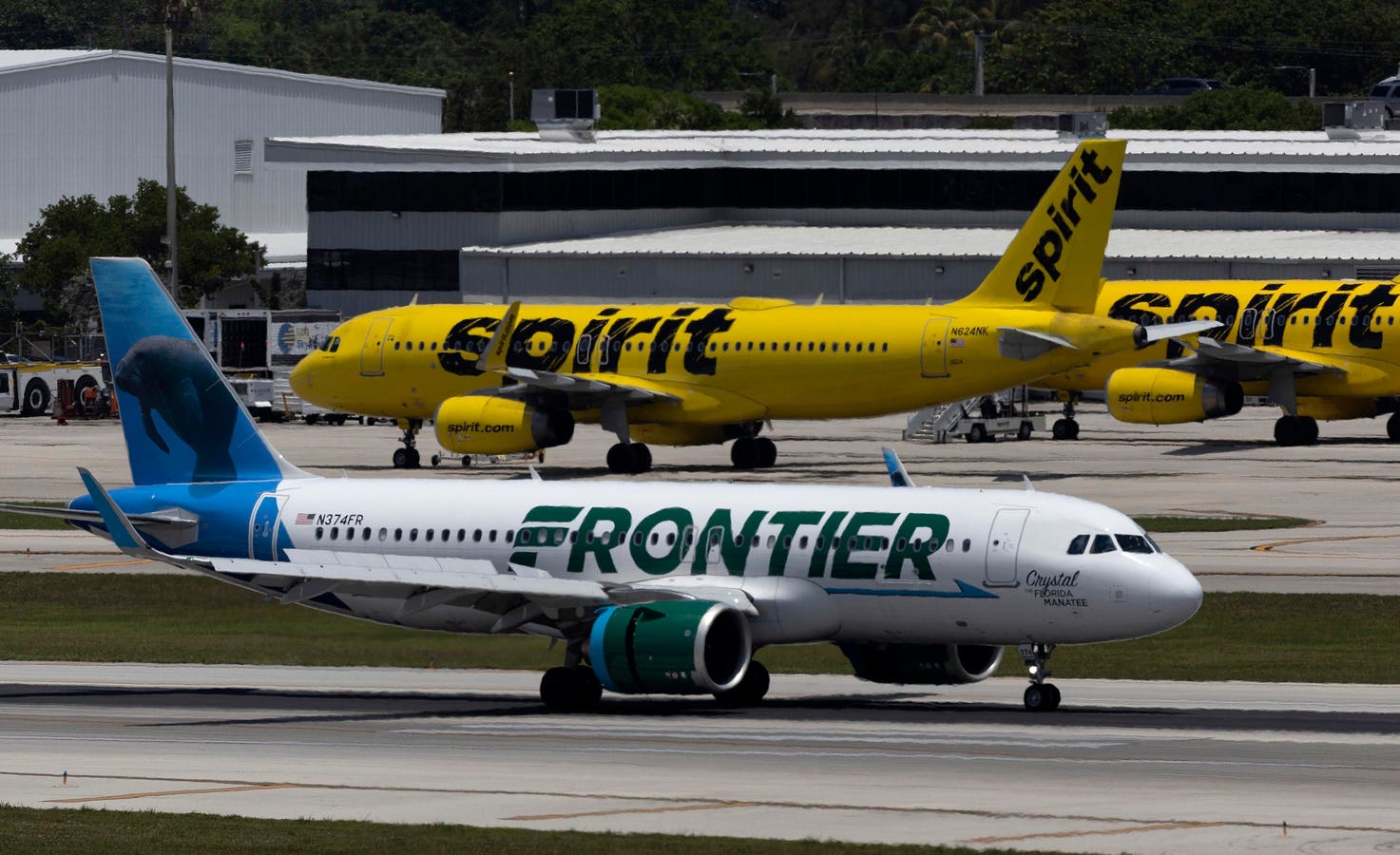Frontier and Spirit, two ultra-low-cost airlines, racked up the most complaints per passenger last year. (Photo by Joe Raedle)
Getty Images
Airline passengers in the U.S. were not happy campers in 2023. Complaints against domestic airlines jumped by nearly 29%—hitting a new record—despite passenger volume increasing by only 11% compared to 2022, according to a new report by the U.S. PIRG Education Fund, the consumer advocacy organization’s report, based on data released by the U.S. Department of Transportation (DOT) last Friday.
Through its online complaints and comments portal, the agency’s Office of Aviation Consumer Protection (OACP) received an estimated 61,233 complaints against U.S. airlines last year, breaking the previous record of 47,591 in 2022. Over the past three years, complaints made up an average of 91% of consumer submissions, with the remainder made up of opinions, compliments and information requests.
Two ultra-low-cost airlines fared the worst for customer complaints. Frontier Airlines garnered 32.99 complaints per 100,000 passengers, more than twice as many as the next-worst airline, Spirit Airlines (14.76). Rounding out the bottom three was JetBlue Airways (13.32).
Alaska Airlines had the best complaint ratio at just 2.34 per 100,000 passengers, followed by Southwest Airlines (3.61).
Among legacy carriers, Delta fared the best, with 3.64 complaints per 100,000 passengers, handily beating American (5.97) and United (7.47).
Only three airlines—Alaska, Southwest and Allegiant—had better complaint-to-passenger ratios last year than in 2022.
Fewer Cancellations and Delays, More Flexibility for Consumers
Cancellations—one of the biggest reasons for complaints in previous years—dropped by more than half, from 2.7% of all scheduled flights in 2022 to 1.2% in 2023. That’s the lowest rate of flight cancellations in over 10 years despite a record amount of air travel, according to the DOT.
Meanwhile, there were slightly fewer flight delays in 2023 than the previous year. Of the 7.28 million flights scheduled by the top 10 U.S. airlines in 2023, 78.3% arrived on time compared to 76.7% in 2022. Nearly 70% of flight delays were weather-related, according to the DOT.
In April, the Biden administration announced a new rule requiring airlines to offer automatic cash refunds for cancellations instead of waiting for customers to request them.
In May, Frontier and Spirit eliminated nearly all change and cancellation fees, which lets travelers modify flights without penalty. These moves bring these ultra-low-cost carriers (ULCCs) in line with the larger airlines, which got rid of most change fees during the pandemic (except for the cheapest, most restrictive tickets). As a result, this summer is the first where virtually all commercial airline passengers who encounter flight cancellations and significant delays have the flexibility to change their plans without incurring a fee.
Compared to global airlines, U.S. airlines had a lackluster showing in the list of the world’s best airlines for 2024 by AirlineRatings.com, the only global safety and product rating website, whose rankings are based on major safety and government audits with 12 key factors, including fleet age, passenger reviews, profitability, safety rating, product rating, innovation and forward fleet orders.
In AirlineRatings’ ranking, JetBlue came in at No. 16, followed by Hawaiian Airlines (No. 17) and Alaska Airlines (No. 18). The legacy carriers were at the bottom of the list, with Delta Air Lines at No. 23, United Airlines at No. 24 and American Airlines at No. 25. Southwest did not break into the top 25 global airlines, but was nevertheless deemed the best low-cost airline in the Americas region.
